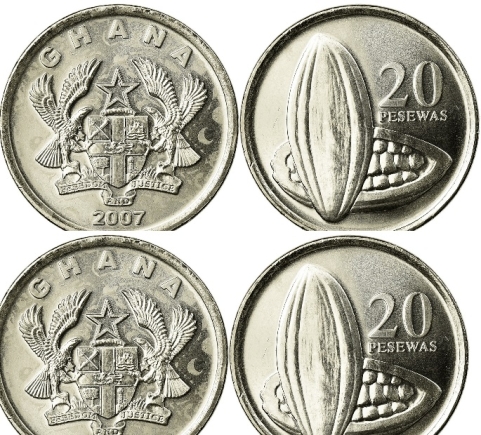Residents in parts of Accra have complained about their inability to use smaller denominations of the cedi, particularly the 20 pesewa coin, as legal tender to transact business.
During checks by The Mirror in communities such as Adabraka, Mateheko, Agege, Kokomlemle, Accra Central, Circle, and some parts of Kpone last weekend, many residents expressed their dissatisfaction with the situation.
They mentioned, for instance, that operators of public places of convenience refused five of the 20 pesewa coins as payment for the GH¢1 “toilet paper.”
They said the situation had emboldened other informal workers, including waste collectors, to also refuse small denominations.
Some of the waste collectors and toilet operators who spoke to The Mirror cited handling difficulties, storage issues, and customers' rejection of coins as reasons they also refused to collect the coins.
A public toilet operator at Agege, Braimah Zion, said, “We charge GH¢1 for the toilet. When people come in with coins and you take it, it will be at your own cost because they will refuse it as change”.
Food vendors
Some food vendors, including vendors of noodles, gari and beans, and other retailers, said a large section of the public had lost interest in the smaller denominations.
They said many customers refused to accept the coins when given them as change.
A resident at Circle, Yaw Asomani, said, “l went to buy gari and beans but the seller took back the food because l was paying solely with 20 pesewa coins and a GH¢ 5 note.”
The owner of Kyeiwaa noodles, a well-known noodles stand at Adabraka opposite the Oldtimers drinking spot, Miss Comfort Boadi, said that though the introduction of the small coins by the Bank of Ghana (BoG) was to simplify trade and improve payment efficiency, it had rather made transactions a challenge.
“Many of the customers refuse the smaller denominations. So, what I do is to tell them l do not have cedi notes, so they should come back later for their change. Since some cannot come back, they are forced to take the coins,” she said.
![]()
• Miss Comfort Boadi, a noodles vendor said small coins had made transactions difficult
No option
Owing to the challenge the traders are confronted with, many are left with no other option but to keep coins less than 50 pesewas in containers in their shops.
A retailer at Accra Central, Miss Hannah Okai, showed this reporter a plastic container full of 20 pesewa coins and said she counted GH¢600 of the coins and took them to a bank, but the bank refused to accept them.
She corroborated the story of the coins being refused by many traders and said many of her colleagues took some coins to the bank and were not given notes in exchange for the coins.
“When l went to the bank, I wanted them to give me notes, but they did not take them. I was shocked. When I told some of the traders they did not believe me, some of them took them to the bank, and they refused.
"If the banks are even refusing the smaller denominations, then what will the citizens do?” she queried.
![]()
• Some toilet operators cited issues including handling difficulties and rejection of the coins
Bank of Ghana
According to information on the Bank of Ghana (BoG) website, various cedi and pesewa denominations have been in circulation from 1965 to the present.
The BoG states that it is the only institution with the right to issue and redeem Ghana Cedi notes and coins in the country.
However, efforts to reach officials of the BoG for a reaction proved futile as it has not yet responded to calls, as well as a questionnaire from The Mirror.
Writer’s email address: lydiaezit@gmail.com

